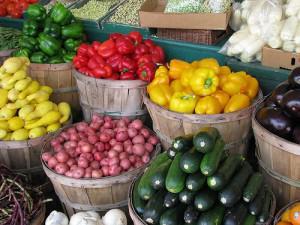 Several years ago while attending a conference in Dallas one of the keynote speakers, a Native American from Taos, New Mexico, recounted the following story:
Several years ago while attending a conference in Dallas one of the keynote speakers, a Native American from Taos, New Mexico, recounted the following story:
When the government came to my tribe’s elders and offered to provide running water, the elders said “No”, we go to the river everyday to fetch our water. We see the streams and rivers firsthand, we know if they are healthy or not. The government made a second offer, that of electricity. Again, the elders said “No”, we go to the forests everyday to cut down the wood we need to heat our homes. We see firsthand the abundance and health of the forest.
Mind you, this was several years ago and the above is a paraphrased version of what the speaker said, but the point remains the same. We have become removed from the origin of our resources and do not see with our own eyes how healthy, or degraded, they are. It is not reasonable for everyone to raise their own food, let alone provide their own heat through harvesting wood, coal, or natural gas. However, it is within reason that we should be conscientious of the impact our consumption and decisions.
Growing vegetables, even if it’s only one container of herbs or tomatoes, can connect one with both fresh foods and the idea of agriculture. Today’s agriculture does not resemble the small scale farms that once supported us. Instead, they have become consolidated entities that own and operate thousands of acres of crop land. Many independent, local, and organic farms can be found by visiting your local farmer’s market. Local Harvest maintains a list of farmer’s markets, as does the United States Department of Agriculture, which can be found here. Large scale agribusiness often tries to coax more out of the land than nature would provide. While this allows us to feed more people and often at a lower cost, it creates a system where we borrow from future generations. Sound familiar? The loss of topsoil has the potential to decrease yields in the future.
In his book Plan B 4.0, which was published in 2009, Lester Brown provides a wealth of information about the state of food prices and what is happening to agricultural lands. Instead of techniques that take from the future to feed the present, we need to find a way to live within our ecological means; a sustainable food source. To bring this back to the anecdote above, we need to have a closer relationship with our food and our surroundings. As a guest post pointed out last year, all manner of people have become alienated from their food and lack the knowledge that connects us to the earth. The time has come to reconnect in whatever way we can.
[Image source]

